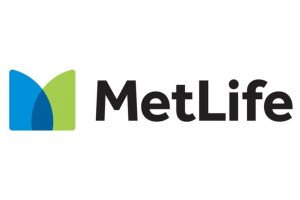Why Get Renter’s Insurance?
Can you afford to replace your belongings in case of a disaster?
Can you cover the legal costs if a visitor is injured at your home?
Realistically, most people can’t front that much cash – that’s where renter’s insurance kicks in.
Renter’s insurance covers these unexpected expenses so you can continue living your life without great financial strain.
Okay- back it up, what does rental insurance generally cover?
-
Financial reimbursements for personal belongings lost or damaged in cases of events out of your control like:
-
Fire
-
Water
-
Power Surges
-
Theft
-
Vandalism
-
Example: You take a weekend trip and come back to find that your apartment was broken into—your TV, computer, gaming system, and other personal items are gone. Without renters insurance, you’d be slapped with the bill. But, with your items accounted for in your policy, you could replace them through your renters insurance.
-
-
Liability coverage for visitors and neighbors:
-
Injury
-
Legal Cases
-
Example: If you accidentally leave the kitchen sink on and it overflows into your neighbors’ apartment, you could be found liable for that damage—and required to pay for repairs, medical bills related to the accident, as well as defense costs if they bring a suit against you. Renter’s insurance would cover those costs.
-
-
Loss of use- if you must leave your home after an accident, Renter’s insurance covers:
-
Costs of shelter (hotel), food, and general living expenses during that time
-
Most apartment complexes and landlords only have insurance that covers the damage to the actual dwelling, which leaves everything of yours—electronics, furniture, clothes, whatever—vulnerable. So, to protect your belongings in case of fire, theft, or damage, you need your own policy.
What isn’t covered?
-
Damages caused by:
-
Flood water, earthquakes, mudslides, nuclear hazards
-
If you live near a fault line or the water or are concerned about these hazards, talk with your insurance agent about getting a separate policy.
-
-
-
Liability lawsuits due to:
-
Negligence for expected or intended bodily injury
-
Example: you throw a baseball in a parking lot trying to hit your neighbor
-
-
Business pursuits
-
Example: the cupcakes you bake in your apartment make someone sick with food poisoning—you would need a business owner’s policy
-
-
Vehicle-related property damage or injury
-
Example: your emergency brake fails and your parked car hits someone—auto insurance covers this
-
-
FAQs:
How much coverage do I need? Many landlords require their tenants to have a minimum of $100,000 in liability coverage. If your landlord doesn’t have this guideline, talk to an insurance agent to determine how much coverage you need. Taking a home inventory of your belongings with photos or a list in an app can help you determine what it would cost to replace the things in your home. But a good rule of thumb, and what basic policies cover, is $30,000 to $50,000 for apartments and around $100,000 for homes.
What if I also need auto insurance? Bundling other policies with renter’s insurance can be a smart and cost-effective way to get the coverage you need.
What if I want Additional Coverage?
- Umbrella Policy- Extra protection starting at $1,000,000 of additional personal liability coverage. Umbrella coverage can include court costs and attorney fees, and it may protect you against various liability hazards not typically covered under home and auto policies. It may also extend protection for other personal liability losses, including:
- libel and slander (written or spoken statements that negatively impact reputation)
- invasion of privacy
- Example: A young couple recently bought and insured their home and two vehicles. Unfortunately, they were involved in an auto accident and they were at fault. As a result, they were sued. Their auto policy then responded to the maximum limits. However, since they did not have an Umbrella policy, it wasn’t enough. Now, their wages will be garnished for many years to come in order to pay off the lawsuit.
- “Medical payments to others” coverage – takes care of medical bills if a visitor suffers an injury in your home (regardless of fault)
- “Credit card and bank forgery” coverage – protects against some monetary fraud attempts, such as if a burglar steals your credit card or check book during a break-in to run up fraudulent charges or write forged checks.
- “Property of others” coverage – replaces not only your belongings, but others’—for example, if you borrow a friend’s laptop, and a leaking pipe destroys it.




